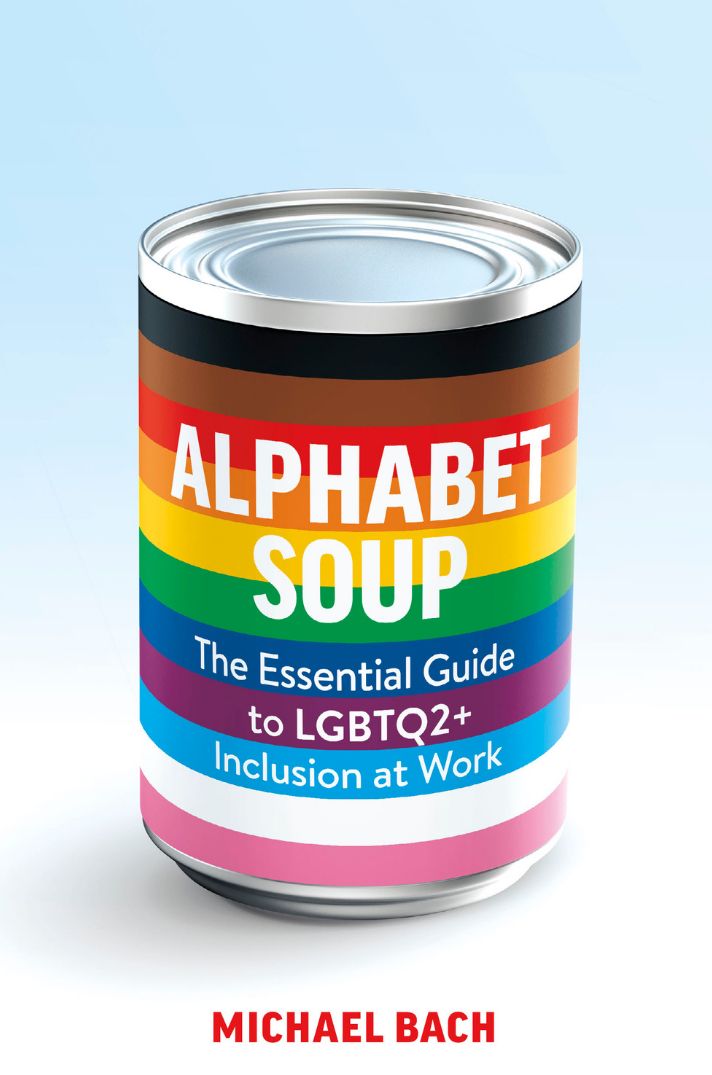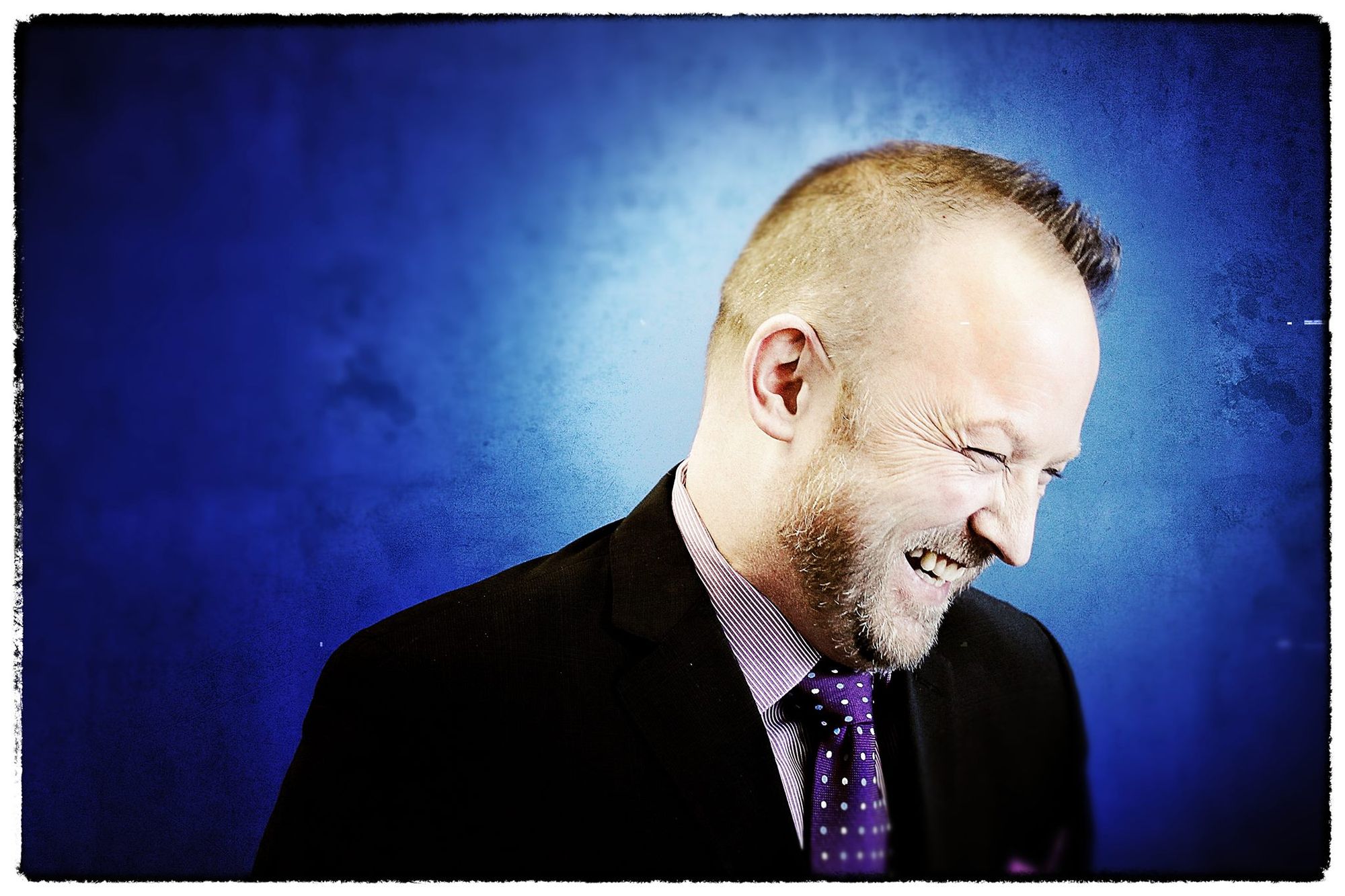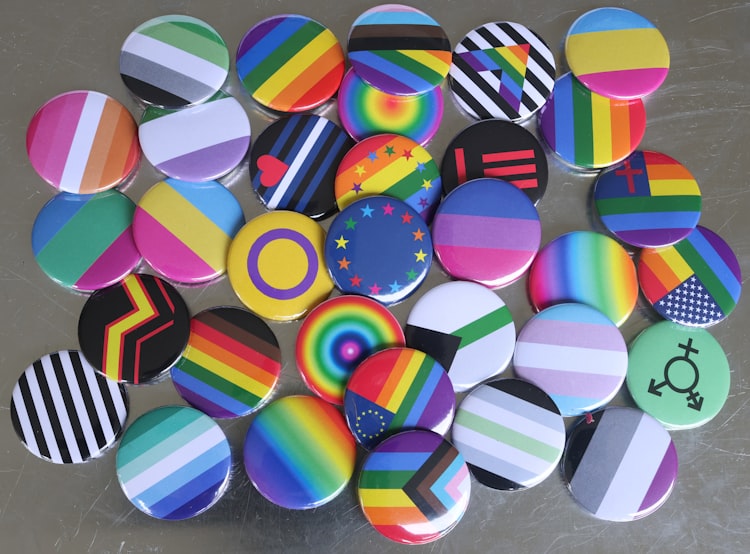Michael Bach’s “Alphabet Soup: The Essential Guide to LGBTQ2+ Inclusion”

Think Queerly Podcast Thought Leadership Interview | TQ220
Michael Bach founded the Canadian Centre for Diversity and Inclusion (CCDI). He is nationally and internationally recognized as a thought leader and subject-matter expert in the fields of inclusion, diversity, equity, and accessibility, bringing a vast knowledge of leading practices in a live setting to his work.
Michael and I spoke about his first book, “Birds of All Feathers: Doing Diversity and Inclusion Right,” on episode 201 of the Think Queerly Podcast last October. He argues that creating diverse, inclusive workplaces is not just the right thing to do―it is the smart thing to do. His latest book, “Alphabet Soup: The Essential Guide to LGBTQ2+ Inclusion,” is the topic of this episode and will be released on March 29, 2022.
This is a deeply personal book for Michael. We discuss his history working for George Smitherman, Ontario’s first openly LGBTQ+ MPP. In 2007, he started what has become Canada’s leading LGBTQ2+ workplace inclusion organization, Pride at Work Canada. Recently, he formally left his role as President of the Board of CCDI, saying that it was time for the company to flourish on its own.
▶️ Watch the video on my YouTube channel:
What’s the Purpose of “Alphabet Soup: The Essential Guide to LGBTQ2+ Inclusion”?
“Sexuality and gender are not the same thing, but they are interrelated… sometimes. You’ll find a lot of myth-busting throughout this book. That’s one of the main purposes of the book: to educate. A big barrier to creating fully inclusive spaces is plain old ignorance. There are a lot of straight, cisgender people who have the best of intentions, but we all know what the road to hell was paved with.”
“Alphabet Soup” is about LGBTQ2+ inclusion in the workplace — about the dignity of identities and understanding. We talk about why that’s important as well as the confusion many people have around the understanding and differentiation between sex, sexuality, gender, orientation, performance, preference, and so on. Michael explains it all in the chapter, “Breaking down the Alphabet.”
I asked Michael, “How do you speak to someone who rolls their eyes — or worse — when you have these conversations? And at what level of management do you see this happening most often?” When we move onto pronouns, we speak about the nature and fluidity of language (see my article, Too Many Gender Identifying Pronouns: The Decision Fatigue Paradox). Michael offered an astute observation that can be useful when someone doesn’t want to respect another person’s preferred pronouns:
“We change names all the time. People who get married, sometimes, change their names. When my mother got married, she took my father’s surname. Her parents and her friends didn’t keep referring to her by her maiden name. So what’s the big deal? But if I suddenly want to use the pronouns, they/them, people get freak out and say you can’t do that to language. Well, yes we can. We do it all the time.”
We discuss the importance of safe spaces, the “Zero tolerance” code of conduct, and the cost of the closet. It’s vital for an LGBTQ2+ person to be fully who they are in the workplace. It’s “important because people pay a high price for hiding parts of themselves, especially from anyone they have substantive interactions with.”
“If you don’t understand the difference between attraction, identity, and expression, you risk misgendering someone or making assumptions about their relationship and the like, which signals that you haven’t done the work and LGBTQ2+ people are not in a safe, inclusive environment.”
Michael tells me about his adaptation of the “Heterosexual Questionnaire,” a counter-intuitive way to turn gender performance on its head that helps non-LGBTQ2+ people better understand what it’s like to be othered.
Finally, I ask Michael what a small organization with a limited or no budget can do to improve its work environment for LGBTQ2+ people.

Learn more about Michael at MichaelBach.com. Get his latest book at Alphabetsoup.lgbt. Follow Michael Bach on social media: Facebook, Instagram, Twitter, and YouTube.





Member discussion